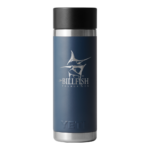
Daily reports and postings of angler-caught fish bitten into or taken whole by sharks, known as depredation, painfully and clearly demonstrates the result of one-sided management, which has produced excessive numbers of sharks off the East, the Gulf of Mexico, and Caribbean coasts. The angler-hooked species taken by sharks range from sheepshead to marlin and occur with fish hooked from shore, piers, small boats, and large boats.
Increased U.S. restrictive Atlantic shark management began in 2015 with implemented changes to the Consolidated Fishery Management Plan for Highly Migratory Species (HMS Plan). If pre-2015 agency shark management failures created what the environmental industry sees as a shark conservation crisis, that failure should not be allowed to exact punitive penalties on U.S. citizens’ fishing rights and economies of the sportfishing and boating industry. That industry includes a multitude of affiliated manufacturing, sales, services, tourism, and charter businesses ranging in size from small local businesses to large national operations.
The 2015 HMS Plan noted the rationale for focusing more on shark conservation, meaning heightened restraints, was because sharks are apex predators that serve important roles in the food web and help keep a balance in the oceans’ ecosystems. Marlin, swordfish, and large tunas are also apex predators, serving the same roles, yet their abundance and that of other species, important to the marine ecosystems, sportfishing and boating are being reduced by shark depredation, a product of one-sided management. A review of some NOAA/NMFS online postings can lead one to believe sharks are in good shape – “above target population levels,” so why such restraints on landings. “Our science-based management has made significant progress toward ending overfishing and rebuilding the stocks of Atlantic sharks” yet there are few current stock assessments, which provide the scientific bases for most management decisions.
https://www.fisheries.noaa.gov/feature-story/are-all-us-sharks-overfished
https://www.fisheries.noaa.gov/insight/understanding-atlantic-shark-fishing
Anglers, like hunters, desire and appreciate healthy stocks of species and abide by responsible conservation measures. Management of a complex of species or single species cannot take place in a vacuum, especially with highly migratory fish. Recovery thresholds should reflect a healthy level of abundance, but not a level where other species, citizens’ rights, and businesses are driven to decline. Any additional shark abundance will exacerbate negative results.
Stock assessments, the bases for fishery management decisions, are not current for many Atlantic shark species, yet management continues restraining the landing of many shark species, which increases shark depredation. It was predicted in 2015 that the then-new management restraints would, and now have created undesignated shark sanctuaries. As long as current management remains in place, shark depredation of hooked fish, individual rights, and business will continue to lose.
No balance in Atlantic shark management means changes are essential. Maybe it is time for Congress to consider authorizing predation compensation, as paid when bears and wolves kill farm animals, and compensation for business losses due to shark depredation, the result of one-sided management. Once anglers capture a fish, under common law, the doctrine of ferae naturae, “the captor of wild animals, who either kills or tames the animals, is entitled to possession over all subsequent finders” or ownership. Whether the argument would stand when applied to the capture of wild fish from private property, boats, is unknown, but it is time for forms of relief to be evaluated by Congress.
Congressional review of Atlantic shark management, shark depredation and subsequent losses to individuals and businesses is needed. While the NMFS informed Congress about the existence of a shark depredation problem, it offered no solutions. Congressional consideration to authorize depredation compensation and compensation for business losses due to shark depredation is due. The additional question that should be addressed is whether the non-highly migratory shark species should be managed by the Highly Migratory Species Division, NOAA or by regional fishery management councils, as a few species are now managed.
TBF calls on anglers, sportfishing clubs and alliances, charter and private boat owners, captains, mates, tournament directors, business owners, and others who have experienced losses due to shark depredation, to write your Senators and Representatives about Atlantic shark depredation and subsequent problems. Please email a copy of your letter and send questions to [email protected]. TBF calls on sportfishing publications to help disseminate TBF’s “call to action” and where to find more information.






